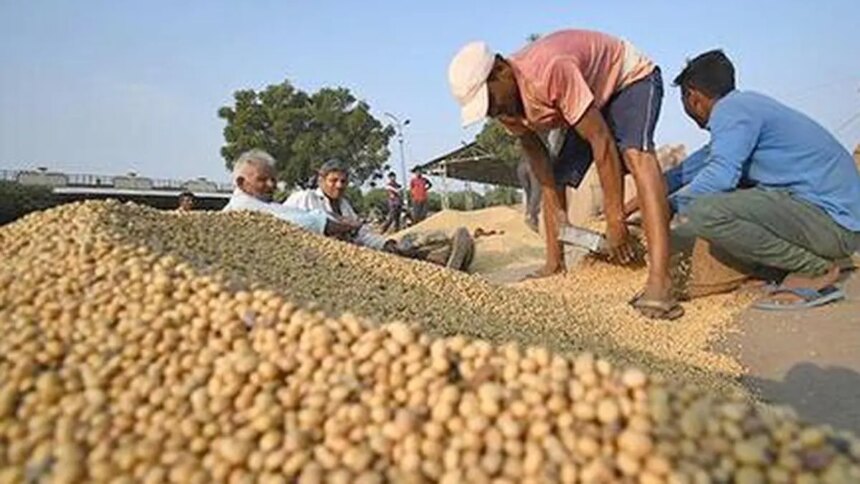The Solvent Extractors’ Association of India (SEA) has urged the Commerce Ministry to pursue the revival of organic non-GMO soyabean and soyabean meal exports to the US as part of the bilateral trade agreements (BTA).
In his monthly letter to the SEA members, Sanjeev Asthana, SEA President, said India and the US are currently negotiating a BTA, which includes discussions on key agricultural commodities such as soyabean and maize.
“In the past, India exported around 1.5-2 lakh tonnes (lt) of organic non-GMO soyabean and soyabean meal to the US. However, opposition from domestic producers in the US led to safeguard duties, effectively halting imports from India. It is essential that the Ministry of Commerce pursues the revival of these exports as part of the ongoing BTA discussions,” he said.
Monsoon forecast
Referring to the recent long-range forecast by the India Meteorological Department (IMD), he said the seasonal rainfall across the country is expected to be 105 per cent of the long period average (LPA), with no likelihood of El Niño conditions. Skymet has also projected rainfall at 103 per cent of LPA.
Terming this as encouraging news, he said a normal monsoon is crucial for a successful kharif crop and will provide a much-needed boost to overall economic activity.
De-oiled rice bran ban
Highlighting his meeting with SEA’s East Zone members on April 1, Asthana said the capacity utilisation of its members has plummeted to 30 per cent, with many units either shut down or on the verge of closure due to the export ban on de-oiled rice bran (DORB). The association has once again made a strong representation to the Prime Minister and ministries concerned urging the removal of this export ban.
The Government imposed a ban on DORB exports in July 2023 due to rising domestic prices, which had peaked at ₹18,000 a tonne. Before the ban, India exported 4–5 lt of DORB annually, valued at approximately ₹1,000 crore to Vietnam, Bangladesh, and other Asian countries. He said the prices have fallen below ₹8,000 a tonne now, and the growing use of distillers’ dried grains with solubles (DDGS) in animal feed has curtailed domestic demand, creating a huge surplus.
China should ease rapemeal curbs
He said the ongoing shortage of rapeseed meal in the European Union (EU) has driven up global prices significantly. Being a major consumer, China currently relies on imports from Canada and the EU. Given the prevailing supply constraints and rising costs, India now has an opportunity to regain its foothold in the Chinese market. Should China relax its stringent import conditions on Indian rapeseed meal, India could emerge as a key supplier.
Import from Nepal
Stating that imports of refined oil from Nepal under the SAFTA agreement at zero import duty are seriously undermining domestic refiners and disrupting the market, he said SEA has taken up this matter with the Central government urging it to introduce a minimum import price (MIP) for edible oils under SAFTA.
SEA has also sought proper channelisation and regulation of such imports, and enforcement of country-of-origin and value-addition norms. The Government has been requested to implement monthly and state-wise import quotas to prevent market saturation in specific regions, he added.
Published on April 21, 2025










